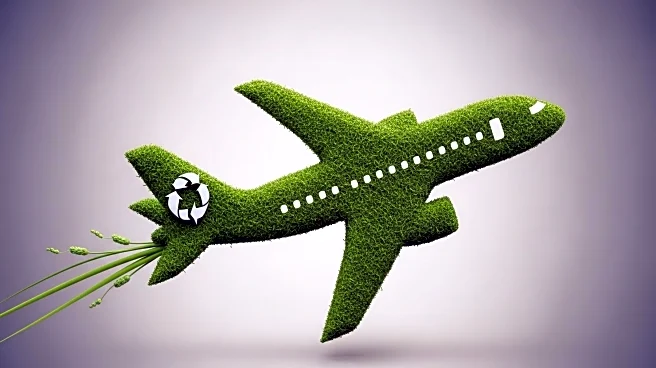What's Happening?
Icelandic budget airline PLAY was confronted with a substantial carbon emissions bill of over 1.6 billion ISK immediately following its operational shutdown. The bill is tied to the EU-wide emissions trading system, which mandates airlines to purchase carbon credits to offset emissions. PLAY's last aircraft departed Iceland with an unpaid debt of approximately ISK 500 million. The Environment Agency of Iceland reported that PLAY produced around 165,000 tonnes of CO2 in 2024, necessitating the purchase of carbon credits by September 30, just a day after the airline ceased operations.
Why It's Important?
The situation underscores the financial challenges faced by airlines in adhering to environmental regulations, particularly the EU emissions trading system. The hefty carbon bill adds to PLAY's financial woes, highlighting the economic pressures on airlines to balance operational costs with environmental responsibilities. This development may influence future airline strategies regarding emissions management and financial planning, especially for budget carriers operating within Europe.
What's Next?
The unpaid carbon bill could lead to penalties, with a surcharge of €100 per tonne added to any outstanding balance. This situation may prompt discussions on the sustainability of budget airlines and their ability to comply with environmental regulations. Stakeholders, including environmental agencies and airline industry leaders, may need to reassess strategies to ensure compliance without compromising financial stability.
Beyond the Headlines
The collapse of PLAY and its subsequent financial obligations highlight the broader issue of aviation's environmental impact and the challenges in decarbonizing the industry. This case may serve as a catalyst for policy discussions on balancing economic viability with environmental sustainability in the aviation sector.










